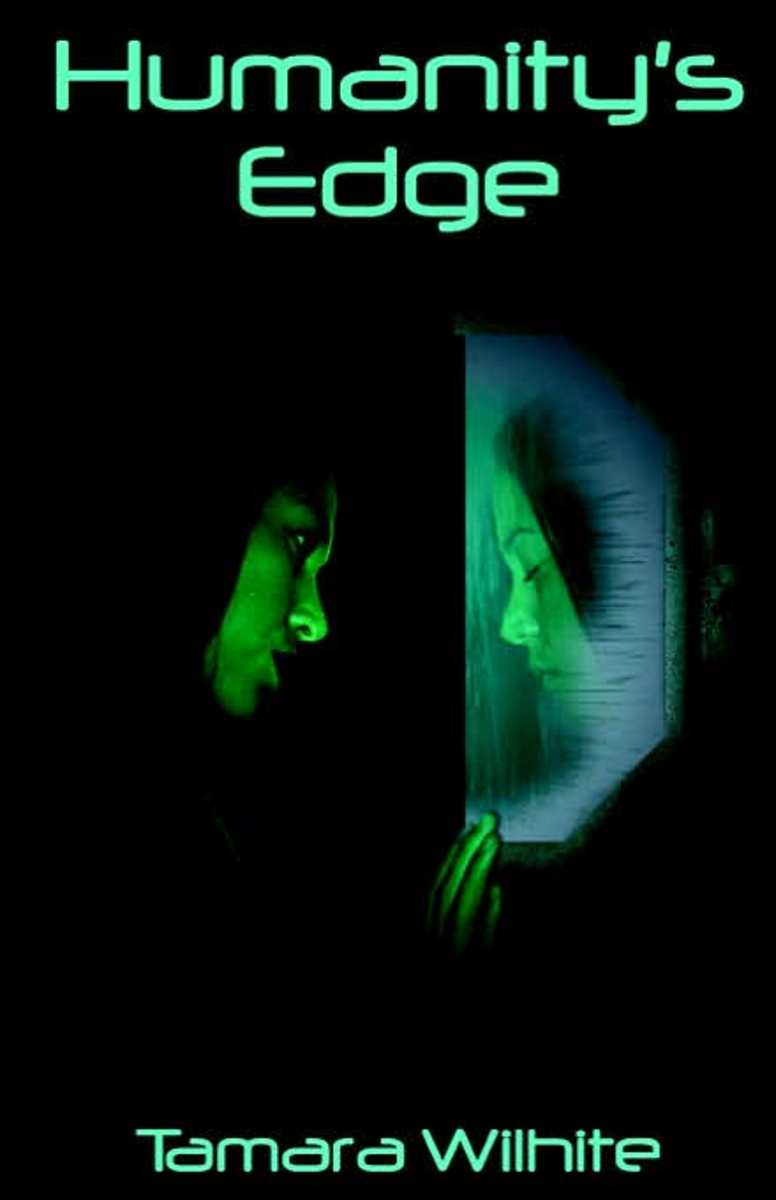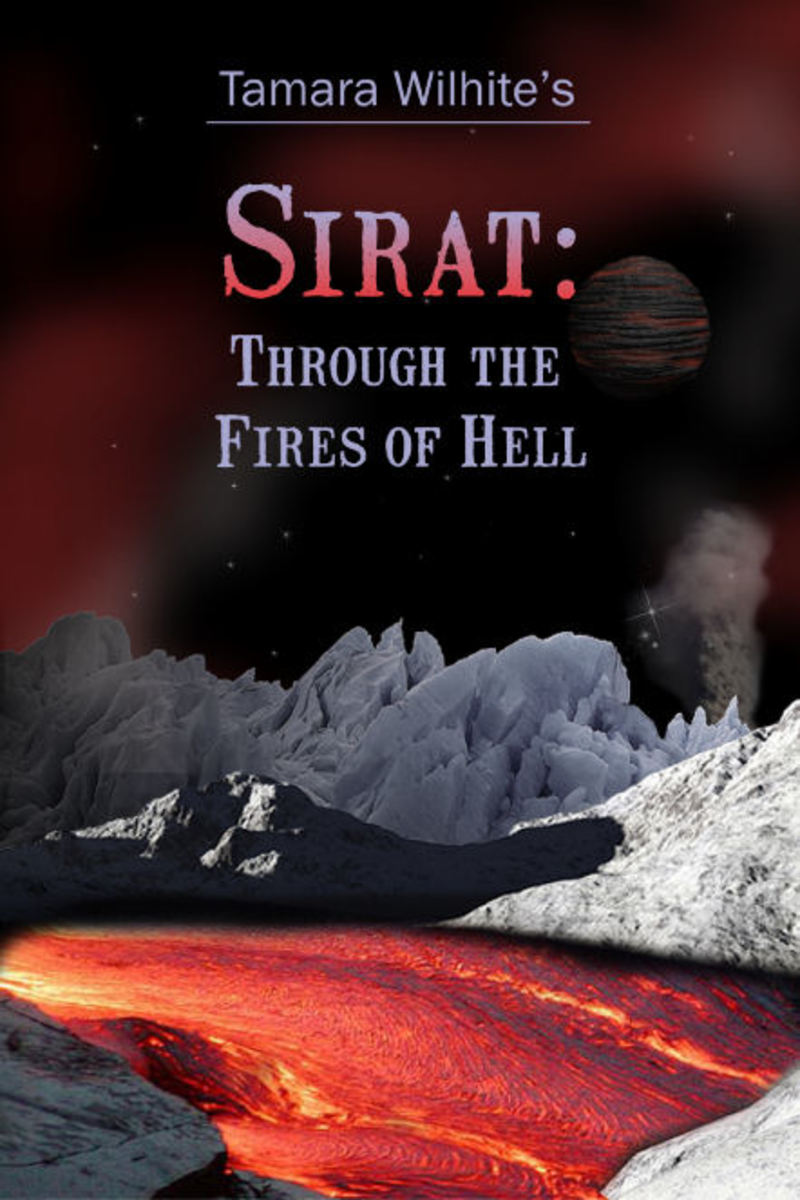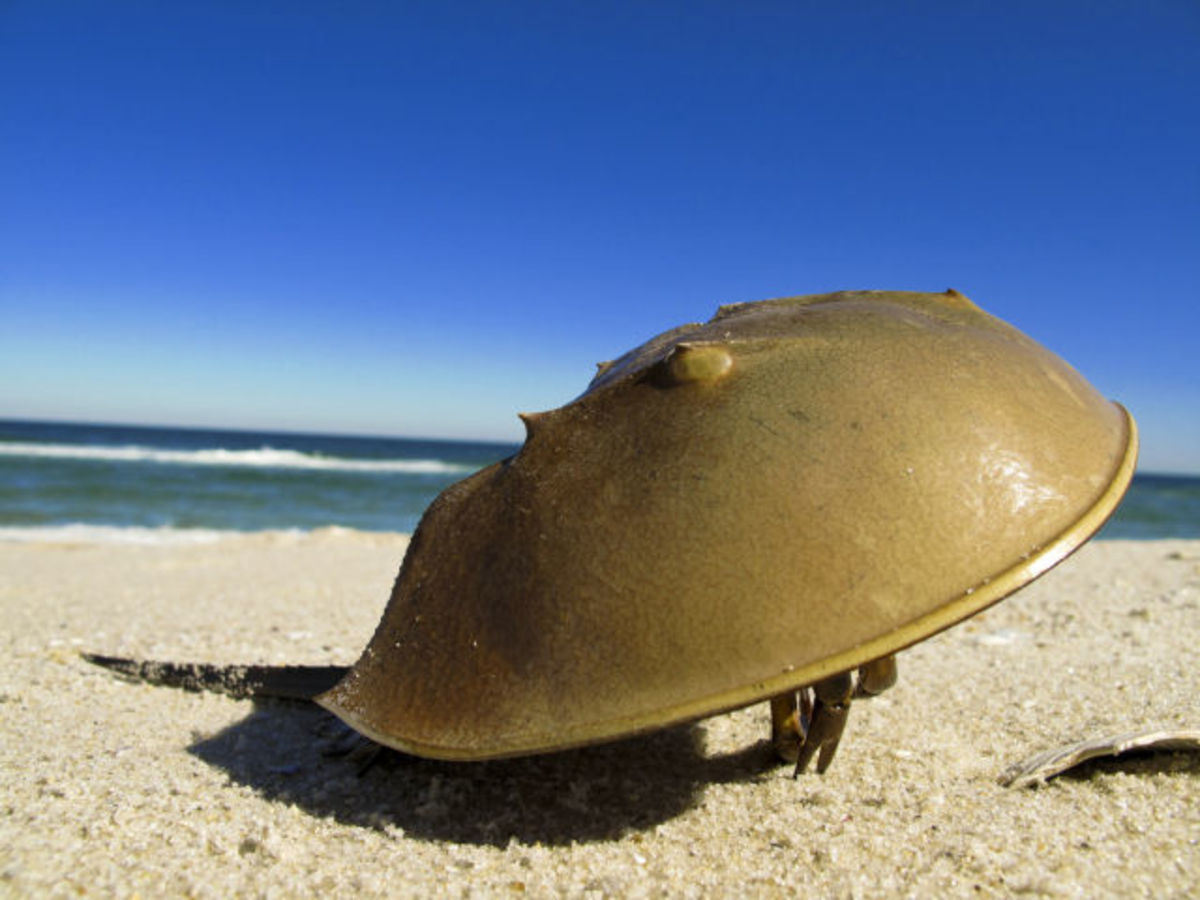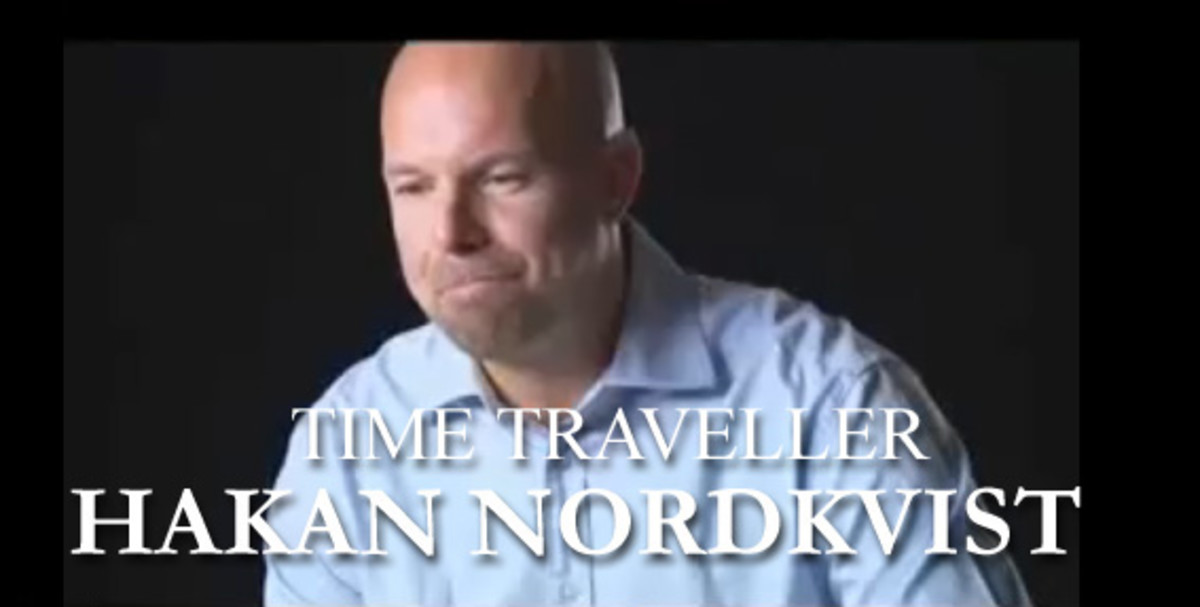- HubPages»
- Books, Literature, and Writing»
- Commercial & Creative Writing»
- Creative Writing
Saving Me, a Short Story
After the End of the World, Life As Usual
Two men with guns walking in the same direction, running. One chasing the other? Both seeking cover? Seeking the same quarry, if not one another? It was so mundane now that it almost didn't matter. The shots continued, but I was ready to look away. If they fell dead, I was too far to make salvage. One looked back and shouted something in code that was vaguely familiar, surprisingly not adding an obscene gesture, and I decided not to look away.
The third in the sequence was odd. One man, taking slower pace, someone slung across his shoulders. Hunters, I decided, with dinner or someone to trade for supplies. A fourth man was behind them, helping an injured one limp as quickly as possible. It rattled me, because so many left so many behind when there were injuries. No room or food for those who could not produce, a better favor was to end their pain before the enemy arrived.
When the firing got closer, the third man was almost to the point where the other two waited. The fourth man with his limping burden threw him over his shoulder and run. They were close enough to safety then to not care about exhaustion.
When a strafing of fire approached their limited shelter, the able bodied man dropped his load. Normal, natural reaction. He then threw himself on top of the injured one. Bullets hit, there was yelling, but I couldn't make out a word.
My vision blurred with tears. I hadn't seen anyone bother trying to sacrifice for another in ... months? Years? I looked away and blinked a few times. I had to save my bodily fluids, water was so scarce.
When my vision cleared, the men were gone. Not even dead or a rifle. It had been less than a minute, so scavengers weren't the cause. The healthy and able had moved the dead and injured to safety.
I couldn't see much more than rubble for where they had last stood. But I memorized its location as a place I would eventually want to go.
They had weapons and knew how to use them. That much was clear from the careful carnage I was able to observe in a slow pass to my water seep hole. Single shots to the head or heart or both. No deliberate mutilation. No leaving people to die in agony from targeted gut wounds. On my way back with the water, I took advantage of the late arrival of local scavengers and checked some of the bodies myself. A few good knives, twine, flasks of fermented whatever. No water or food I'd trust, but it was something of value. I took other unknown wrapped items for later discovery.
The group had food to sustain the injured to heal or willing donations to cannibalism. That meant they were well supplied, compared to most.
The willingness of one man to put himself over another - an injured one at that, hurt. Were they related? Close friends? Lovers? All three? None of the above? It was something one might have seen early in the war, but not long into it, much less in the aftermath. I remembered doing the same, long ago and far away and under a bullet proof vest, for someone whose name I could not remember.
When the doors were solidly sealed, I rested. I had enough water for several days after filtering. Knives went dull and some of these were sharp. The fermented stuff could keep the cold away, either in my stomach or flex-fuel oven. I searched through the wrappers and threw most of it in the oven. Years old cough drops, herbal mixes I couldn't identify and thus not trust, unknown melted things that might have been gunpowder. The stove popped and crackled, but it didn't explode. Probably not gunpowder, then.
I had more time to think about those strangers. Loyalty and a solid, capable group. That was rare, especially in the urban areas. Rural hold outs might still have that, but that was far as the Moon as I was concerned. Crossing hostile territory, mindless violence without even the check of people who have seen me and know I am mostly harmless, lack of supplies to cross what may no longer be wild terrain, and a land hunted over so much that nothing but two and more legged insects were out there. At least here, near the river, there was water I knew how to clean, some fish that were minimally poisonous, and occasional city wildlife like pigeons that weren't all already dinner.
The bomb shelter felt large as I let the backpack fall from my shoulders. The noise of its thud seemed to echo. I knew no one else could hear; the soundproofing my husband and I had put in was too good. Made to hold six for indefinite periods, the kids died from the early plagues despite our medicine and he died from injuries from the search to get what they needed, dying at home, too sick for what he had to help.
Food and supplies for six for six months equaled 36 months for one. I stretched it out by scavenging, waiting until the worst of the grocery store raids were over but before others figured out how to snare and hunt. Four and a half years later, I had three and a half months of supplies left. I had hoped for the war to be over and sanity to return. Maybe it had, elsewhere. Here, the war just changed enemies, from foreign to domestic water wars, gang turf and suburban guys with guns fighting.
I wondered about Utah, the Mormons and all their supplies. As long as they weren't overwhelmed by California's chaos, they might have it good. Pity we didn't take the Provo, Utah transfer back then ... because I thought it was too cold. We had a bunker here, but their whole religion was preparedness. We thought it would get bad, but not this bad.
I'd tried taking in a few neighbors who were helpful. The old woman who had tried to help keep the kids alive with fluids but got sick herself. The older veteran without legs but knew how to shoot and had had all his food run out due to limited mobility, targeted even worse because he was melanin challenged; he had said his legs were lost from the prior war, but it was really diabetes, and I'd never stocked much artificial insulin for never seeing the need beyond the standard medical kit ration. He turned out to be nearly blind already, and lasted two weeks on what I did have.
The teenage girl down the block who knew how to shoot and had a healthy toddler. Maybe I offered her because it would fill in an emotional gap. My kids died but hers hadn't. Turned out, she'd picked up something nasty from someone she'd traded sex for supplies with and I couldn't give her what little of the right antibiotic I had. She tried to fight with me, but I wasn't the one sick. I gave the drugs to the baby instead. She died after trying to kill me in anger. The baby died from an overdose, because it turned out kids that little weren't able to process the drug.
I didn't try to help anyone after that. It all went bad. Just like everything else.

Dreams of a Better Life
Sleep came as the mix and match of debris burned. I later realized that there may have been hallucinogens in the mix, plastic coated in chemical warfare residue giving off mind altering substances, for as strong as the dreams were.
I saw the shadows in the distant, fleeing clear and present danger. I tried to follow, fleeing my own past. Like Alice in Wonderland, I jumped into the hole. The deep tunnel ahead of me was bizarre. The rows of cars lining it were show room perfect. People were inside, trying to drive down the highways to safety, but the cars would not move. The people inside were shot and maimed and burned and infected, but the cars were perfectly untouched.
The runners ran past, seeking safety deep in the depths, far ahead. I stopped at the sight of a familiar vehicle. My parents in their desperate drive across town to get to the bunker, to be with us. They were trying to read paper maps because the GPS was out and crashed, so their last phone call to me for directions had indicated with the loud sound of twisting of metal. I was almost glad for the certainty of the finality then, knowing it was fast and almost painless. Better than knowing they were among the millions of unknown dead or later starving refugees.
Seeing them in the car, racing to come home, to us, this was what my mind imagined them like. Not mercifully and peacefully in heaven, but in a living hell seeking life. It hurt. I turned away, not bearing to see them. Through the tears, I could not see the survivors who still had enough life and hope to help each other. When my vision cleared, the men were gone. The cars were there, too. This time, they were twisted wreckage and burnt heaps, the cars I saw every day today.
I woke sobbing.
The clock said morning. I didn't move in the bed. I didn't have to, I thought. Security checks, getting clean and sanitary for safety's sake, ration counting to maintain appetite control ... none of it reached me. Not even appetite for food.
I slept in and dreamed of home. My son and daughter fighting over a noisy toy, a suitcase nuke going off outside the picture window. All the glass everywhere as I grabbed them and carried them into a central room. I turned on the security system we’d turned off to save power, then switched to remote batteries as the power went out. The EMP wasn’t the only strike, just a first strike. The computerized defenses the nation used were now dead, unable to stop the bombs that followed. We were inside but still felt the shaking of several concussive waves. It was followed by then the secondary bombs, aerosol stuff, exploding into the atmosphere. It reached every nook and cranny, because so many windows were blown out and even walls were cracked. This was war meant to wipe us out.
The house offered some safety, but the house wasn't air tight; my children were exposed. So was I, because I put the gas masks on them as fast as I could and could not find the adult ones that the kids had been playing with. Didn't matter, because they were already exposed to nasty pathogens with a 90% kill rate, and worse for children. That my kids weren’t part of the immune 10% wasn’t proof I was unlucky, just average. "I love you," I told them as often as I could. In case it was the last thing they ever heard. Or that I heard. I could not tell when they slipped from coma to death, as ill as I was myself.
My husband made it home three days later, through broken terrain. Found them sick and left again for medicines we hadn't been able to stockpile. Returned with antibiotics and anti-virals, though I never asked where they came from. He died of sepsis and toxins even later bombs dropped, combinations of which our personal medicines didn't resolve. The neighbor woman I let in to help me take care of the kids died before he'd even gotten home, picking it up from the kids and dying fast or already dying from it and hoping for help. Took in the neighbor, seeking a replacement for my husband. Buried him, and then found the girl while I did security checks, her toddler in tow. The kid has survived this long where mine hadn't, was likely immune, I had to help. Not in retrospect, but did then.
Compassion is an emotional response meant for kinship groups. Feel their pain, help ease it, survival of the family or group is enhanced. When there is no group, when there is no family, the emotion is a burden. Maybe I was lucky I burned out fast and early. It kept me from trying to help again.
The car dream came back. It took two days for me to remember where it was from. Walking through a hyper-expensive underground parking garage that connected to local office buildings. A decent place to hide, since you could get anywhere from here. And it was underground, shelter from some bombs, with water run off that would keep away contaminated rain as well as provide a means of capturing rainwater when it was safe to use. Lower levels might provide a place to put trash or let contaminated material go while people lived above it, like toxic flows flowing into basements. The office buildings above were almost structurally intact. Lots of paper to burn, if nothing else. The vehicles would give metal and leather and tools to salvage. The only limitation was food, but that was a constant problem everywhere.
The spot where the men disappeared was one of the drive in ramps, mostly covered by metal and car wreckage. Their entrance, so it had to be defended. But I had worked in one of those buildings. I knew other ways in. Having been an engineer, I actually knew something of the design; I'd done environmental impact studies of the improvements.
For the first time since the war, I went to work.
Next Step
I walked there at sunrise. It was almost routine but for the carnage. I could almost imagine myself in a suit, having dropped the kids off at daycare, ready for a meeting and design review discussion. Almost.
Walking into the lobby was effortless. Shattered glass, all the furniture taken for fuel, nothing of value left so there was no one here. After all, it offered neither shelter or safety nor food nor salvage. Local observers might have thought me insane for the light expression on my face.
Past the security desk, with the uniformed body of someone whose name I might have known, the name tag mercifully muddied beyond reading. I went past meeting rooms and cubicles. A few bodies were strewn here from a gunman attack, though why escaped me. Much of the paper was gone, as I expected, the rest to wet and muddy to use as fuel. Except for surprising a badger or skunk in a dark cube, I encountered nothing alive.
Scrambled bits of memories were too hard to endure. I sat down in the copier room for a while. It had some old office chairs not in bad shape as well as being nearly invisible among the smashed machines. Someone had hauled out all the electronics and hit them with crowbars or axes. Luddites? Or just crazy?
I sat in the silence, remembering the arguments as to why we still needed paper when everything was digital. The answer was security, because paper copies were so inconvenient that they were rarely forged, where Adobe and Photoshop could do anything to everything electronic. The secretary had then gone over to her shelf, where she kept her "entertainment".
The closed plastic container was still there. Butterscotch and peppermints still sat in the plastic container, each candy individually wrapped. In an inside room on a bottom shelf, unnoticed and untouched. I leaned over to get the container when I heard someone.
Scavenger habits hit hard. I was down, the candy under my body. The thrill of sugar was worth the risk of my life.
It could have been any of the runners. They did a sweep, perhaps following footprints it was hard not to leave. One peered into the room, face pale in the rising sunlight, but he saw nothing that registered from my viewpoint. I'd stepped on a chair before sitting on another and then sliding to this corner. After all, footprints in mud would lead anyone to anyone else here. In the distance, the badger or skunk made the same ruckus I had.
The patrol seemed to move on in a heightened state. They had seen foot prints. They knew someone was here. Leaving would be more difficult.
Did I want to leave?
Why did I come in the first place?
To live alone is to die alone, my grandfather had said before his remarriage ceremony. As if not having someone to love him every day was to be as dead as my dead grandmother. And I was alone, every day. Most people I might meet would kill me. If I was lucky, I would be dead before they decided to rape a not unattractive mid-30s female. Was I looking for someone to save me, or was I looking for someone to save? Or did it not matter any more?
God save me from this mess.
When the scout returned, I realized the last thought had been said aloud. A gun was raised and ready but silent.
"If I said don't shoot, would you actually hesitate in doing so?" I asked. It was a rhetorical question, but if he knew I was here, nothing worse could happen for asking it.
"Who's there?" he demanded.
"Idiot!" another voice answered. "What's it matter?"
The voice hit on other memories. "Jakowitz?" I asked, having no memory of a face.
"Who the hell is that?" the first voice asked. "Jack, do you know?" There was a deep growl, a sound I did remember. Jack-off, the joke had been. Don't Jack-off with Jakowitz, he's a mean stick in the cuss word of your choice. Security system design and ex-military. Tough as nails, some said, unless he ate them before spitting them.
"It's Rochelle," I said. The name meant nothing. We'd all been business, professionals. "Rodgers," I added. I stood up slowly, hands in the air. The faces were lightly bearded, as if recently shaven or radiation exposed. One of them might have been Jakowitz with a heavy beard.
"Names mean nothing," the familiar voice said. "They can also be learned, memorized -"
"R&R. That's what you said my initials really were for all the sick kid days I had to take before ..." What do you call the end of the world?
"The kids here?" he asked.
"Dead."
"Of what?"
"Plague."
"You had a damn good shelter."
"Bunker busting bombs did damage, the walls weren't ... enough. They died within a week."
"Where's Kev?"
"Dead. Getting medicine for the kids."
It was a sob story in any other circumstances. Here and now, I could not feel tears. The pain had been there so long it was a familiar ache. Familiar company.
"Where you been?" he asked.
"Surviving." It felt cliché to say. Did he believe I was who I said I was? My story wasn't real enough to the others, whose aim was steady and sure they did not want me. "Obviously, I haven't the Edmunds' report on time." The others looked angry or confused. Jakowitz huffed. "It was my last assignment before I went on leave for my daughter's surgery, that month off -"
"I know. I had to take that up to get it done on time."
He remembered. He also motioned for others to put their guns down. "Why are you here?"
"I saw others coming here."
"That was stupid."
I slowly lifted up the candy. I offered to toss it to him. A different man caught it and put it down. "Why come here?" he asked again. Three laser tracers went to my heart. One was on my eye briefly and I blinked, hoping the spots weren't a sign of blindness.
"To live alone is to die alone," I said, the only thought that I could coherently think of. "My supplies will only last a few more months, and after that, I'm scavenging like everyone else, and it's so slim, I have no chance but cannibalism but I can't do that -" I stopped at the expressions on their faces. They didn't do that. They killed those who did. I meant to say I couldn't catch someone alone, in the current environment. They took an ethical stand, and that hardened reaction was a sign of it. They'd kill you, but they wouldn't eat you.
I sighed. "What else do I have to say?"
"Don't say anything."
They debated for hours whether or not I was a lead for a trap. They couldn't deny that possibility. Or that I was crazy. Jakowitz took the lead and a couple guys. After a night in the shelter, they began multiple runs to strip it down to only a few days worth for a few people. This was to become a back up refuge, in case the main one was struck. Jakowitz observed the equipment and my creative animal collections. He turned those off. "We'll come back to that if we need it. Ought to let the wildlife recover somewhere, so we can hunt better here later."
"We?" I asked.
"Hell. You survived this long, and not just on supplies ... why not we? Hubby's dead, you said."
"Yeah."
"We're damn short of women these days, and you were fertile ... right?"
"Please, lets not discuss this now. Not `til we're back to your place."
His odd look made me realize how weird my answer was in response to his question. He’s asking if I can make kids and I’m saying I’ll talk about it “back at his place”. Wow, lots of connotations there. But he and his guys were amazingly decent, not even cracking jokes about my answer. This was as civilized as I’d find after the end of th world.
With the full loads of supplies carried at night by men with night vision goggles, my honesty was proven. I had to sample much of it for them, to prove it wasn't poisoned. Someone even tested the smoked pigeon meat I had. It was proven to be animal, so I wasn't shot for that offense.
"You're smoked stuff is so good, I'd trust it for our kids," Jakowitz said.
"There are kids here?" I asked.
"Few. Wish we had more. It's hard to keep them safe when there are so many freaks and cannibals out there, looking for easy prey. And we can't let that happen."
"I agree, Jack." He slapped my hand then, something like what he did with the guys but trying not to cause pain.
"There's a cannibal hunt tomorrow. Are you going?" he asked me.
"I'd rather stay here, at home. Teach the kids, maybe. Help add to the community."
He had an odd expression on his face. "I'd say I could eat that right up, but you don't make jokes like that anymore," he said. Civilization had to start somewhere. Not eating each other was a start.
And civilizations need people. Preferably decent ones.
"Should I call you Jack like the others?" I asked softly.
"No. Jakowitz is fine. Can we talk about R&R?" he asked.
God, he had a lot to learn. Yet he wants me to teach him. He wants me to stay. Please let me live long enough to have the time to teach him, to have a chance to do more than live.




